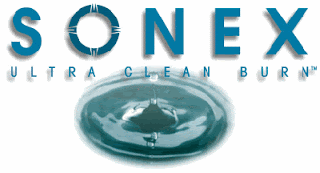WYHA? TTAB Affirms 2(d) and Specimen Refusals of SONEX for Aircraft Engines
The Board affirmed two Section 2(d) refusals of SONEX for internal combustion engines for manned and unmanned aerial vehicles, in view of the identical mark registered for "aircraft, and aircraft kits comprised of aircraft parts and plans to build complete aircraft." The Board also affirmed the PTO's refusal of Applicant's specimens of use, comprising an invoice and a press release. After you read the decision, ask yourself, "Would You Have Appealed?" In re Sonex Research, Inc., Serial Nos. 77435929 and 77979007 (April 6, 2012) [not precedential].

Likelihood of Confusion: Of course, when the marks are identical, a lesser degree of similarity between the involved goods is necessary to support a likelihood of confusion finding. Applicant argued that, as everyone knows, aircraft engines and aircraft are manufactured by different sources. Although that may be true, the Board observed, the cited registrations covers aircraft kits as well as aircraft.
There are no limitations to the goods in the application and cited registration, and so it is presumed that they move in all normal channels for the respective goods. Since an engine may be part of an aircraft kit, the Board assumed that the products move in the same channels of trade to the same classes of consumers. Applicant argued, without evidence, that the customers for these products will exercise a high degree of care. Even so, the Board noted, "even careful consumers are not immune to trademark confusion." [Compare yesterday's COSMETIC WORLD decision - ed.]
Weighing all the duPont factors, the Board found confusion likely, and it affirmed the Section 2(d) refusal.
Specimens: Examining Attorney Julie A. Watson rejected the specimens in one of the two applications, namely, the one for engines for unmanned aircraft. The specimens comprised a press release and an invoice. Although press releases and invoices are generally not acceptable specimens of trademark use, Applicant argued that Rule 2.56(b)(1) applied, and that the PTO should accept these specimens because "it is impracticable to place the mark on the goods, packaging for the goods, or displays associated with the goods." Moreover, Applicant's customers may not want the source of the engine to be traceable.
The Board was not impressed. This was not a case like those involving natural gas, or s, grain sold in bulk, or chemicals transported in tanker cars. And even if customers did not want the mark affixed to the goods, Applicant could have placed the mark on hang-tags or removable stickers.
In any case, even if the specimens could be considered displays closely associated with the goods, they did not show the mark SONEX used to identify internal combustion engines.
And so the Board affirmed this refusal as well.
TTABlog comment: Well? Would you have?
Text Copyright John L. Welch 2012.




3 Comments:
The decision highlights poor planning on the part of applicant. If the identification did not specify "aircraft" and simply identified internal combustion engines not for land vehicles, which is an accepted id, the applicant would not have handled an easy 2(d) refusal on the examiner's lap. Typically when the same word is found in both the application and cited reference, particularly for identical marks, it is unavoidable to get a first office action CYA refusal from an examiner.
Also the reference to sophistication is again uninspired. I would have been more persuaded if the Board referenced aircraft parts to drugs in the sense that the public is less tolerant for confusion.
With all these acronyms flying around, you'd think the federal government was somehow involved. ATMO, it's not worth wasting time to appeal the specimen nor the LOC refusals. Maybe it's time to rebrand and hire a trademark attorney a little more frequently.
If I had as much money as an aircraft or aircart parts manufacturer, perhaps I would waste it on a trademark application appeal likely to fail. I guess such companies are not exactly a "mom and pop" shop.
Post a Comment
<< Home